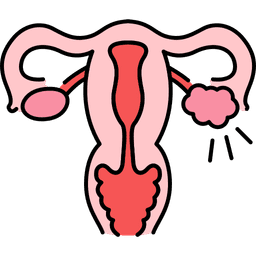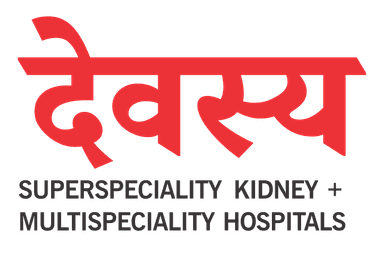Ovarian Cyst Treatments & Surgery
How Devasya Hospital Helps to Cure Ovarian Cyst?
Devasya Hospital is a renowned hospital for complete and advanced ovarian cyst treatment. Our specialized approach includes using laparoscopic Oophorectomy. It is a minimally invasive method used to remove the infected ovary with precision and as little discomfort as possible. Small hole (laparoscope) are used in this procedure, resulting in faster recovery, less postoperative discomfort, and a shorter hospital stay.
Our skilled medical team, equipped with state-of-the-art technology, is dedicated to providing personalized care. Each patient's unique needs are carefully dealt with, displaying our commitment to customized treatment plans. Those seeking effective treatments for ovarian cysts can rely on Devasya Hospital's commitment to quality and patient well-being. At Devasya Hospital, Laparoscopic Oophorectomy is a safe, effective, and patient-friendly approach to treating ovarian cysts. With a focus on compassionate care and successful results, we strive to enhance the health and quality of life of every patient we serve. Choose Devasya Hospital for unrivaled medical care, expertise, and excellent results in the treatment of ovarian cysts.
FAQs
Ovarian cysts can be caused by various factors. One common cause is hormonal imbalances, which disrupt the normal hormonal regulation of the ovaries. Hormonal stimulation during the menstrual cycle, endometriosis, pregnancy, and certain medical conditions like polycystic ovary syndrome (PCOS) can also contribute to the development of ovarian cysts. It's important to note that while the exact cause of ovarian cysts is not always known, they are generally considered a common occurrence in women of reproductive age.
To diagnose ovarian cysts, healthcare providers may perform several tests. These include a pelvic examination, where the doctor checks for any abnormal masses or tenderness in the pelvic area. Transvaginal or abdominal ultrasound is commonly used to visualize the ovaries and detect the presence, size, and characteristics of ovarian cysts. Blood tests may be conducted to measure hormone levels and evaluate hormonal imbalances. In some cases, a laparoscopy, a minimally invasive surgical procedure, may be performed to directly visualize the ovaries and determine the nature of the cysts.
The symptoms of ovarian cysts can vary depending on factors such as their size, type, and whether they cause any complications. Common symptoms include pelvic pain or discomfort, often on one side of the abdomen, bloating or swelling in the abdomen, changes in menstrual patterns, painful intercourse, frequent urination, and a feeling of heaviness in the pelvis. It's important to note that not all ovarian cysts cause symptoms, and they may be discovered incidentally during routine examinations or imaging tests.
The early signs of ovarian cysts can be subtle and may include mild pelvic pain or discomfort, a feeling of heaviness or pressure in the lower abdomen, changes in menstrual patterns such as irregular or missed periods, and mild bloating or abdominal swelling. It's important to seek medical attention if you experience any persistent or worsening symptoms or have concerns about ovarian cysts.
While most ovarian cysts are benign and resolve on their own, complications can sometimes occur. These include cyst rupture, which causes sudden and severe abdominal pain, bleeding, and, in rare cases, infection. Ovarian torsion can also happen when a cyst causes the ovary to twist, resulting in severe pain and compromised blood flow to the ovary. Hemorrhage, or bleeding within the ovary or into the abdominal cavity, can occur in rare cases, leading to significant pain and possible complications. Certain types of ovarian cysts, such as endometriomas or polycystic ovaries, can contribute to fertility issues and impact a woman's ability to conceive.
Preventing the development of ovarian cysts may not always be possible, as many cysts occur naturally during the menstrual cycle. However, some steps can be taken to reduce the risk or manage existing cysts. These include maintaining a healthy weight, managing hormonal conditions such as PCOS, and practicing safe sex to reduce the risk of sexually transmitted infections that can lead to cysts. Regular gynecological check-ups and pelvic examinations can also help detect and monitor any changes in the ovaries. If you have concerns about ovarian cysts or your risk factors, it's important to consult with a healthcare professional for personalized advice and guidance.



